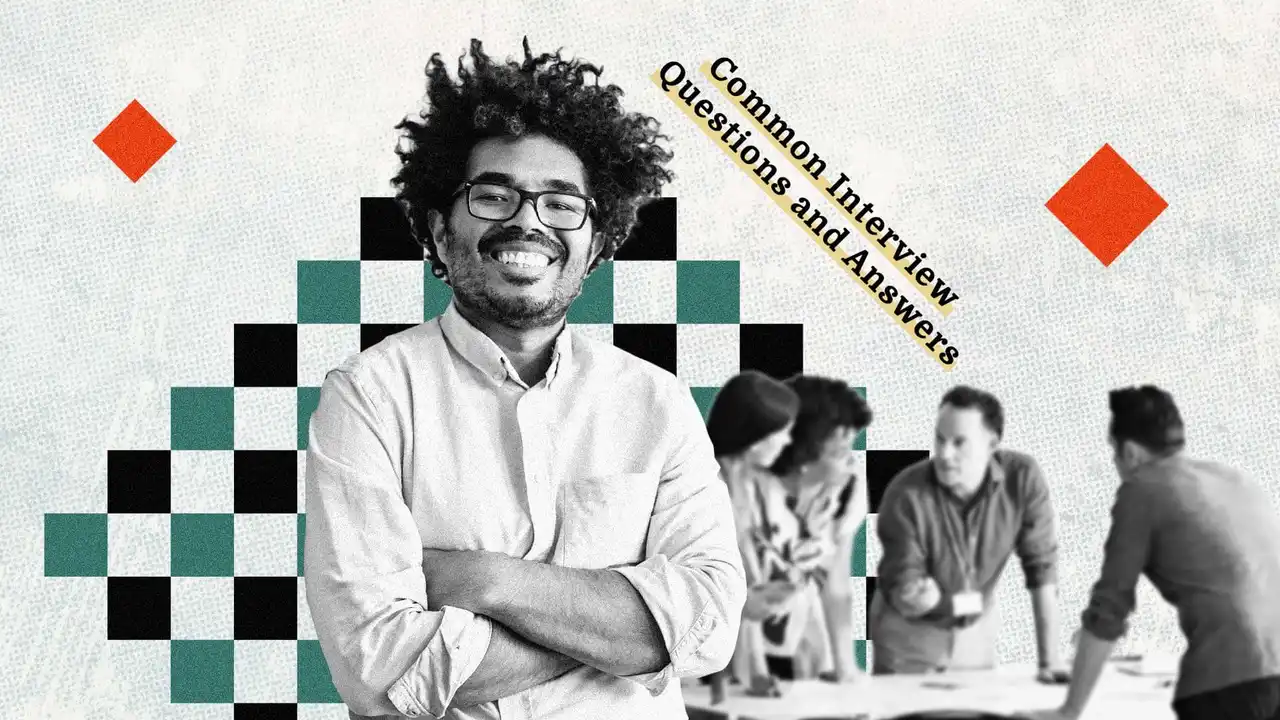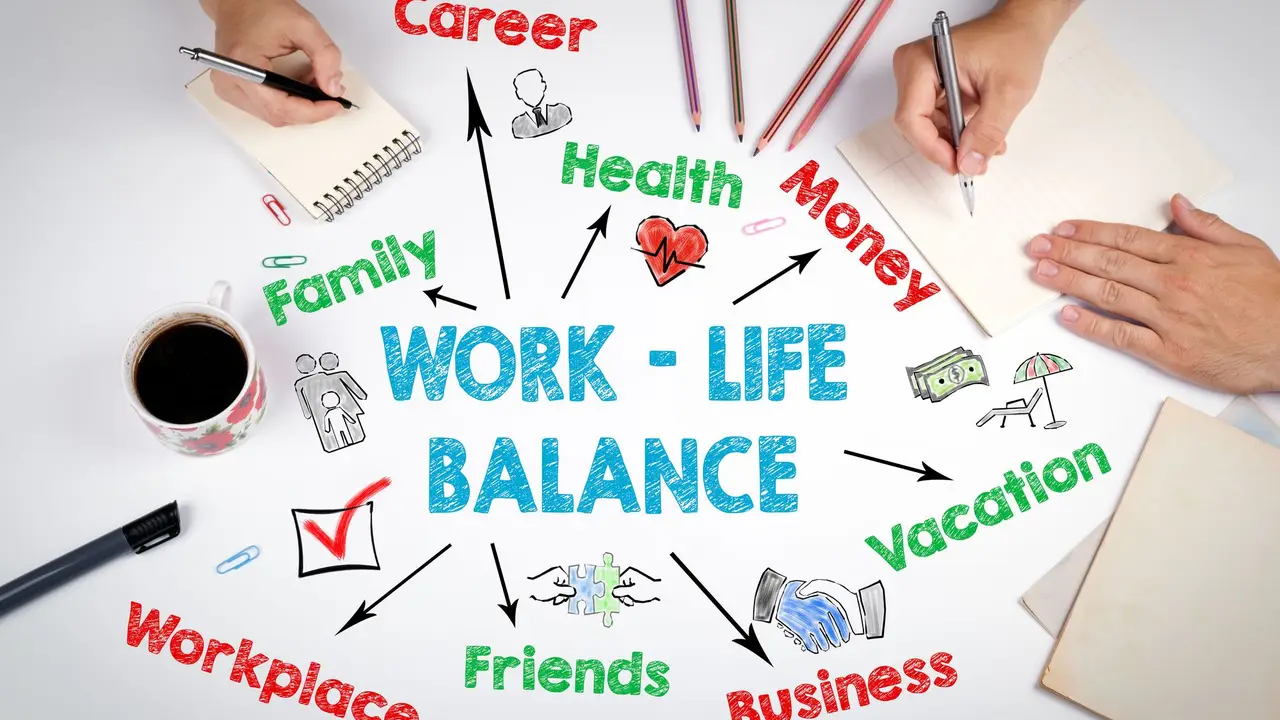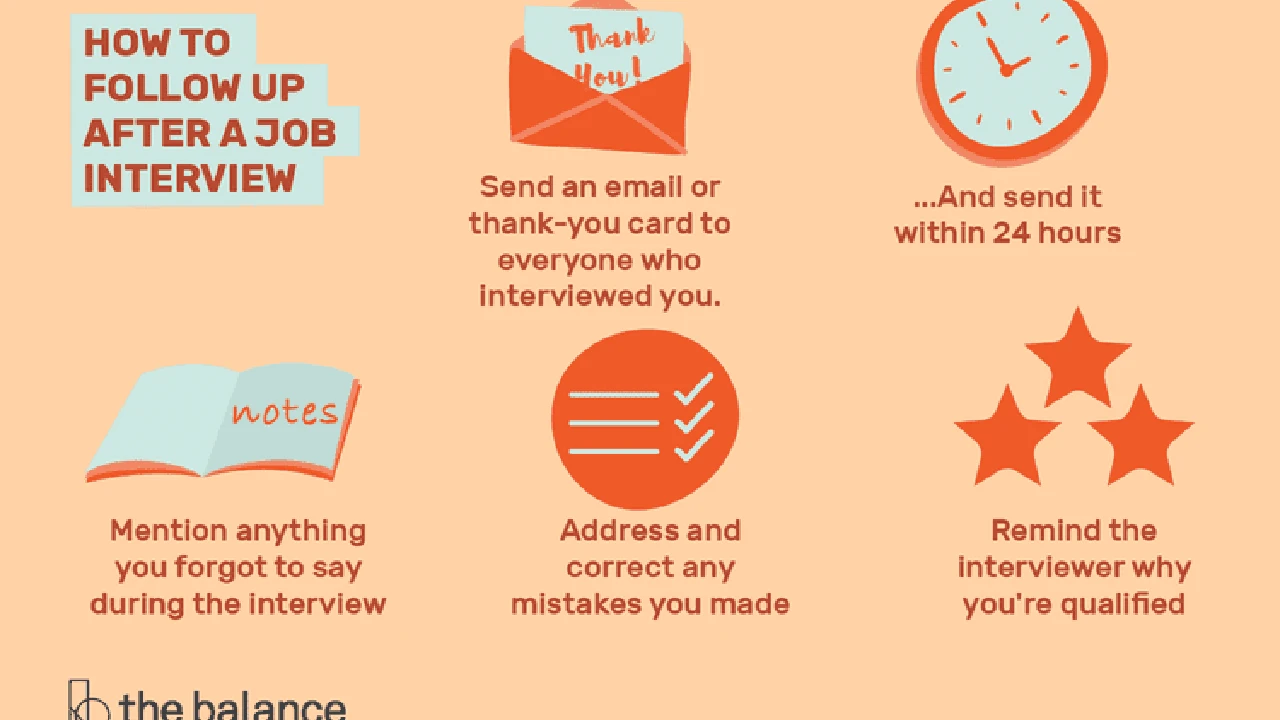Common Interview Questions and Best Answers
Prepare for common interview questions with expert-recommended best answers to impress employers.

Common Interview Questions and Best Answers
So, you've landed an interview! That's fantastic news. Now comes the crucial part: preparing to ace it. While every interview is unique, there's a core set of questions that hiring managers frequently ask. Knowing how to tackle these common interview questions with confidence and well-thought-out answers can significantly boost your chances of landing that dream job. This guide will walk you through some of the most common questions, provide expert-recommended best answers, and even suggest some tools to help you practice.
Tell Me About Yourself Crafting Your Personal Narrative
This isn't an invitation to recite your resume. Instead, it's an opportunity to tell a concise, compelling story about who you are professionally, why you're interested in this role, and how your past experiences align with the company's needs. Think of it as your elevator pitch.
Best Answer Strategy for Tell Me About Yourself
Start with your present, move to your past, and then connect it to your future (with this company). Focus on relevant skills and experiences. Keep it brief, around 1-2 minutes.
Example: "Currently, I'm a [Your Current Role] at [Your Current Company], where I've spent the last [Number] years specializing in [Key Skill/Area]. For instance, I recently led a project that [Quantifiable Achievement]. Before that, I gained valuable experience in [Previous Relevant Experience] at [Previous Company]. What excites me about this [Role Title] position at [Company Name] is the opportunity to [Connect your skills to their needs], particularly in [Specific Area of Interest], which aligns perfectly with my career aspirations and what I understand about your company's goals."
Why Are You Interested in This Position Demonstrating Genuine Interest
This question assesses your motivation and whether you've done your homework. Don't just say you need a job. Show genuine enthusiasm for the role and the company.
Best Answer Strategy for Why Are You Interested in This Position
Research the company's mission, values, recent projects, and the specific responsibilities of the role. Connect your skills and career goals to what the company offers.
Example: "I've been following [Company Name]'s work in [Specific Industry/Area] for some time, and I'm particularly impressed by [Specific Company Achievement or Value]. This [Role Title] position immediately caught my eye because [Specific aspect of the role that excites you, e.g., 'it allows me to leverage my experience in X to solve Y challenges']. I'm eager to contribute to [Company Name]'s mission of [Company's Mission] and believe my skills in [Relevant Skill 1] and [Relevant Skill 2] would be a strong asset to your team, especially in [Specific Project/Area mentioned in job description]."
What Are Your Strengths Highlighting Your Best Qualities
This is your chance to showcase your best professional attributes. Don't just list strengths; provide concrete examples of how you've demonstrated them.
Best Answer Strategy for What Are Your Strengths
Choose 2-3 strengths that are highly relevant to the job description. Use the STAR method (Situation, Task, Action, Result) to illustrate each strength with a brief anecdote.
Example: "One of my greatest strengths is my problem-solving ability. For example, in my previous role at [Previous Company], we faced a challenge with [Situation]. My task was to [Task]. I took the action of [Action taken], which resulted in [Quantifiable Result]. Another strength is my strong communication skills, which have been crucial in collaborating with cross-functional teams and presenting complex information clearly to stakeholders."
What Are Your Weaknesses Turning Challenges into Opportunities
This question is a classic trap if not handled correctly. Don't say you have no weaknesses, and don't list a critical skill for the job. Instead, choose a genuine weakness and explain how you're actively working to improve it.
Best Answer Strategy for What Are Your Weaknesses
Pick a weakness that isn't central to the job. Frame it as an area for growth. Describe the steps you're taking to overcome it. Show self-awareness and a commitment to improvement.
Example: "In the past, I sometimes struggled with delegating tasks, preferring to handle everything myself to ensure it was done perfectly. However, I've recognized that this can hinder team efficiency and my own productivity. To address this, I've been actively working on trusting my team more and empowering them. For instance, I recently started using [Tool/Method, e.g., a project management tool like Asana] to better assign and track tasks, which has significantly improved our team's workflow and my ability to focus on higher-level strategic initiatives."
Where Do You See Yourself in Five Years Aligning Ambitions with Company Growth
Hiring managers want to see if your long-term goals align with opportunities within their company. They're looking for ambition, realism, and a desire to grow with them.
Best Answer Strategy for Where Do You See Yourself in Five Years
Focus on growth within the company, developing new skills, and taking on more responsibility. Avoid overly specific job titles unless you know they exist. Show your commitment to the industry and continuous learning.
Example: "In five years, I see myself as a highly valued contributor at [Company Name], having significantly grown my expertise in [Specific Area relevant to the role]. I'd love to be in a position where I'm taking on more complex projects, potentially mentoring junior team members, and continuing to learn and adapt to new challenges. My goal is to continuously develop my skills and contribute to the company's long-term success, ideally in a role that allows me to [Specific type of contribution, e.g., 'drive strategic initiatives' or 'innovate new solutions']."
Why Are You Leaving Your Last Job Professional Transitions
This question can be tricky. Always remain positive and professional. Avoid badmouthing previous employers or colleagues. Focus on forward-looking reasons.
Best Answer Strategy for Why Are You Leaving Your Last Job
Focus on growth, new opportunities, or a better fit for your skills and career goals. If you were laid off, state it simply and explain what you learned or what you're looking for next.
Example (Seeking Growth): "While I'm grateful for the experience I gained at [Previous Company], I've reached a point where I'm looking for new challenges and opportunities to expand my skills in [Specific Area]. This role at [Company Name] particularly excites me because it offers [Specific opportunity, e.g., 'the chance to work on larger-scale projects' or 'a more direct impact on product development'], which aligns perfectly with my career trajectory."
Example (Laid Off): "Unfortunately, my previous company underwent a restructuring, and my position was eliminated as part of a larger departmental change. While it was unexpected, it's given me the opportunity to reflect on what I truly want in my next role, and I'm now actively seeking a position where I can [Connect to what this new role offers, e.g., 'apply my project management skills in a more dynamic environment']."
Do You Have Any Questions for Us Demonstrating Engagement
Always, always, always have questions prepared. This shows your engagement, critical thinking, and genuine interest in the role and company. Not asking questions can make you seem uninterested.
Best Answer Strategy for Do You Have Any Questions for Us
Prepare 3-5 thoughtful questions. Ask about the team, company culture, challenges, or future projects. Avoid asking about salary or benefits in the first interview unless they bring it up.
Examples:
- "What does a typical day look like for someone in this role?"
- "What are the biggest challenges facing this team/department in the next 6-12 months?"
- "How would you describe the company culture here?"
- "What opportunities are there for professional development and growth within this role?"
- "What are the next steps in the interview process?"
Behavioral Interview Questions Using the STAR Method
Many interviewers use behavioral questions, which typically start with phrases like "Tell me about a time when..." or "Give me an example of..." These questions aim to understand how you've handled past situations, as past behavior is often a predictor of future performance.
The STAR Method for Behavioral Questions
The STAR method is your best friend here:
- S - Situation: Briefly describe the context or background of the situation.
- T - Task: Explain the task you needed to accomplish or the problem you needed to solve.
- A - Action: Detail the specific actions YOU took to address the situation or complete the task.
- R - Result: Describe the outcome of your actions, ideally with quantifiable results.
Common Behavioral Questions and STAR Examples
Tell me about a time you failed or made a mistake Learning from Setbacks
Example: "Situation: In my previous role as a marketing coordinator, I was responsible for launching a new email campaign for a product. Task: My goal was to increase click-through rates by 15%. However, I overlooked a crucial step in the A/B testing process, which led to a lower-than-expected open rate for the initial segment. Action: I immediately recognized the error, paused the campaign, and conducted a thorough review of our testing protocols. I then collaborated with a colleague to re-segment the audience and re-launch the campaign with corrected parameters. Result: While the initial launch was delayed, the corrected campaign ultimately exceeded our original click-through rate goal by 5%, and I implemented a new checklist for all future A/B tests to prevent similar oversights. I learned the critical importance of meticulous attention to detail and double-checking every step in a process."
Describe a challenging situation you faced and how you overcame it Problem Solving Under Pressure
Example: "Situation: As a project manager, I was leading a critical software development project with a tight deadline. Midway through, a key developer unexpectedly left the team. Task: My task was to ensure the project remained on schedule and within budget despite this significant setback. Action: I immediately assessed the remaining workload and identified the most critical tasks. I then held an urgent meeting with the team to re-distribute responsibilities, cross-train existing members on the departing developer's tasks, and proactively communicated the potential delay to stakeholders, proposing a revised, yet still aggressive, timeline. Result: Through effective re-prioritization and strong team collaboration, we managed to deliver the project only three days behind the original schedule, and stakeholders appreciated the transparent communication. This experience reinforced my ability to adapt quickly and lead a team through unexpected challenges."
Tell me about a time you had to work with a difficult colleague or client Conflict Resolution and Collaboration
Example: "Situation: In a previous role, I was part of a cross-functional team working on a new product launch. One team member, from a different department, consistently missed deadlines, which impacted our overall progress. Task: My task was to address this issue to ensure the project stayed on track without creating further friction. Action: Instead of confronting them publicly, I scheduled a private one-on-one meeting. I approached the conversation by expressing my concern for the project's success and asking if there were any obstacles preventing them from meeting their commitments. It turned out they were overwhelmed with other projects. We then collaboratively brainstormed solutions, including re-prioritizing some of their tasks and offering my assistance where possible. Result: By understanding their perspective and offering support, we were able to get them back on track. They met all subsequent deadlines, and the project was launched successfully. This taught me the importance of empathetic communication and finding collaborative solutions to interpersonal challenges."
Tools and Resources for Interview Preparation Practice Makes Perfect
Beyond knowing the answers, practicing your delivery is key. Here are some tools and resources that can help you refine your responses and build confidence:
1. Online Interview Simulators and AI Tools
These platforms use AI to simulate interview environments, record your responses, and provide instant feedback on your verbal cues, body language, and answer content. They are excellent for practicing under pressure.
- Pramp: This platform connects you with other job seekers for mock interviews. You take turns being the interviewer and interviewee. It's free and offers a wide range of interview types (technical, behavioral, product management, etc.). The peer feedback is invaluable.
- Interview Warmup (Google): A free tool that uses AI to ask common interview questions and provides real-time feedback on your speaking pace, filler words, and key talking points. It's great for getting comfortable with the flow of an interview.
- Big Interview: A more comprehensive paid platform that offers extensive video lessons, a vast library of practice questions, and AI-powered feedback on your recorded answers. It's like having a personal interview coach.
2. Video Recording Apps and Software
Sometimes, the simplest tools are the most effective. Recording yourself answering questions can reveal habits you didn't even know you had.
- Zoom or Google Meet (Self-Recording): Simply start a meeting with yourself and hit record. Practice answering questions as if you were in a real interview. Play it back and critically evaluate your eye contact, posture, hand gestures, and verbal clarity.
- Smartphone Camera: The camera on your phone is perfectly adequate for self-recording. Set it up as if someone were interviewing you and practice away.
- Loom: While primarily a screen recording tool, Loom can also be used to record yourself speaking. It's easy to use and share, making it good for getting feedback from friends or mentors.
3. Flashcard Apps for Question Recall
While not for practicing delivery, flashcard apps can help you memorize key points for your answers and ensure you don't forget crucial details under pressure.
- Anki: A powerful, free, open-source flashcard program that uses spaced repetition to help you memorize information efficiently. You can create decks for common interview questions and your tailored answers.
- Quizlet: A popular and user-friendly flashcard app. You can create your own sets or find existing ones related to interview preparation.
4. Pricing and Availability of Recommended Tools
- Pramp: Free.
- Interview Warmup (Google): Free.
- Big Interview: Offers various plans, typically starting around $79 for a monthly subscription, with discounts for longer commitments. They sometimes have free trials or limited free access.
- Zoom/Google Meet/Smartphone Camera: Free (assuming you already have the device/account).
- Loom: Free for personal use with limitations on video length and number. Paid plans start around $10-$12 per month for more features.
- Anki: Free for desktop and Android. iOS app is a one-time purchase (around $25).
- Quizlet: Free with ads. Quizlet Plus is around $36 per year for ad-free experience and advanced features.
Remember, the goal isn't to memorize answers word-for-word, but to understand the underlying intent of each question and to have a clear, concise, and compelling story ready to tell. Practice, refine, and go into that interview with confidence!
:max_bytes(150000):strip_icc()/277019-baked-pork-chops-with-cream-of-mushroom-soup-DDMFS-beauty-4x3-BG-7505-5762b731cf30447d9cbbbbbf387beafa.jpg)






